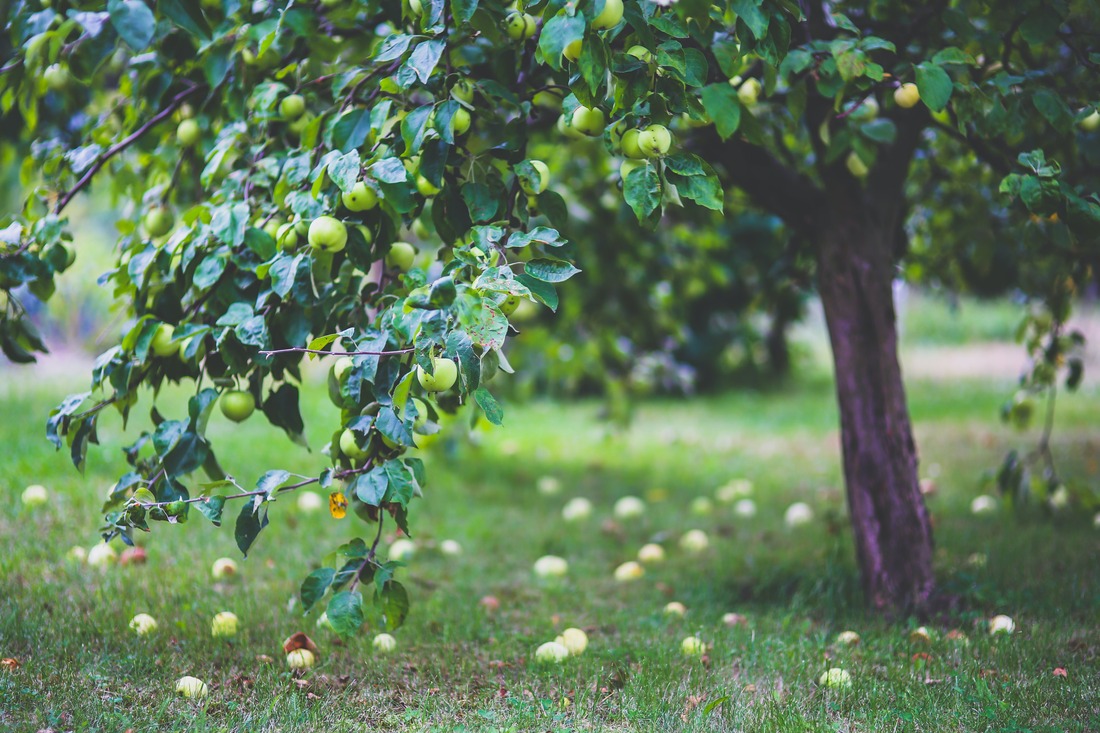|
Shevat, the eleventh month on the Hebrew religious calendar, usually occurs during January and February on our calendar. Its name has an interesting origin in the Akkadian language. The Jews became familiar with it while they were in captivity in Babylon. Its meaning, to strike, refers to the heavy rains that pour down during the month. The constellation in the sky during Shevat corresponds well with the meaning of the month's name. It is Aquarius, the water bearer. The first time Shevat is mentioned by name in the Bible is in the book of Zechariah, Chapter 1, Verse 7: "On the 24th day of the eleventh month, the month of Shevat, in the second year of Darius, the word of the Lord came to the prophet Zechariah..."
Occurring in the middle of this month is what the Jews call Tu B'Shevat or The New Year of Trees. Thus, Shevat is known as a month of renewal, rebirth, revival, and regeneration. The New Year of Trees occurs on the fifteenth day of this month and is considered a minor holiday in Israel. Dried fruits are always on the menu for this celebration. Also, placed on a plate would be the fruit of the seven species mentioned in the Torah: wheat, barley, grapes, figs, pomegranates, olives, and dates. Jews that celebrate Tu B'Shevat are reminded of their duty to care for the natural world. Shevat 15 was the original date when tithes from fruit trees were to be given to the priests. Rabbis determined that fruit which blossomed before the 15th of Shevat would be called produce of the previous year. The fruit that blossomed before this date was produce of the rains from the previous year and should be tithed along with the crops of the previous year. The New Year for Trees date is also used for the purpose of calculating the age of trees for tithing. According to Leviticus 19:23-25, the fruit from trees may not be eaten during the first three years. On the fourth year, the fruit must be given to God. By the fifth year, one may eat the fruit of their trees. It is significant that the Bible talks about the way humankind should be rooted and grounded and that through the cultivation of strong roots of faith, we can produce fruit for the Kingdom of God. Both Jeremiah 17:7-8 and Psalm 1:3 instruct us to be like trees "planted by streams of water, which yield its fruit in season and whose leaf does not wither..." The purpose of a tree is to provide fruit to bring life to others. We also have been blessed to be able to give our spiritual fruit to others so that they can grow in Christlikeness. Hope is given to the people of Israel and all of us who are grafted into the family of God through the words of the prophet Jeremiah. "In those days and at that time, I will make a righteous Branch sprout from David's line; He will do what is just and right in the land. In those days Judah will be saved, and Jerusalem will live in safety. This is the name by which it is called: ‘The Lord Our Righteous Savior.’” (Jeremiah 33:15,16) How exciting it is that we have been grafted into the olive tree to share in the nourishing sap from the root! (Romans 11:17) We are called to be trees "planted by the water that never fail to bear fruit.” (Jeremiah 17:8) In addition, we are called to be "...oaks of righteousness, a planting of the Lord for the display of His splendor." (Isaiah 61:3) Let's celebrate this month of Shevat by rooting deeply into the soil of the Lord's truth so that we bring forth fruit and display His righteousness. |
Joan E. MathiasCategories
All
Archives
July 2024
|

 RSS Feed
RSS Feed